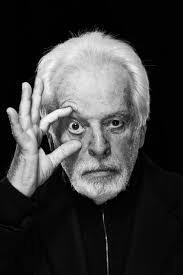
Tolkien’s both ‘The Lord of the Rings’ and ‘The Hobbit’ stories have ceaselessly inspired imagination and creativity for decades, of dragons and semi-humans, of tales of conquest and victory, and those of intensity and fear. Entirely visualizing a fantasy world of his own, Tolkien has added a new perspective towards world literati.
Here is one of his quotes when he’s responding to an opinion that mythology, much of which inspires Tolkien’s universe, is ‘a disease of language’:
Mythology is not a disease at all, though it may like all human things become diseased. You might as well say that thinking is a disease of the mind. It would be more near the truth to say that languages, especially modern European languages, are a disease of mythology. But Language cannot, all the same, be dismissed. The incarnate mind, the tongue, and the tale are in our world coeval. The human mind, endowed with the powers of generalization and abstraction, sees not only green-grass, discriminating it from other things (and finding it fair to look upon), but sees that it is green as well as being grass. But how powerful, how stimulating to the very faculty that produced it, was the invention of the adjective: no spell or incantation in Faerie is more potent. And that is not surprising: such incantations might indeed be said to be only another view of adjectives, a part of speech in a mythical grammar. The mind that thought of light, heavy, grey, yellow, still, swift, also conceived of magic that would make heavy things light and able to fly, turn grey lead into yellow gold, and the still rock into a swift water. If it could do the one, it could do the other; it inevitably did both. When we can take green from grass, blue from heaven, and red from blood, we have already an enchanter’s power — upon one plane; and the desire to wield that power in the world external to our minds awakes. It does not follow that we shall use that power well upon any plane. We may put a deadly green upon a man’s face and produce a horror; we may make the rare and terrible blue moon to shine; or we may cause woods to spring with silver leaves and rams to wear fleeces of gold, and put hot fire into the belly of the cold worm. But in such “fantasy,” as it is called, new form is made; Faerie begins; Man becomes a sub-creator.
Read the full article in Brain Pickings to further understand his perspective.









